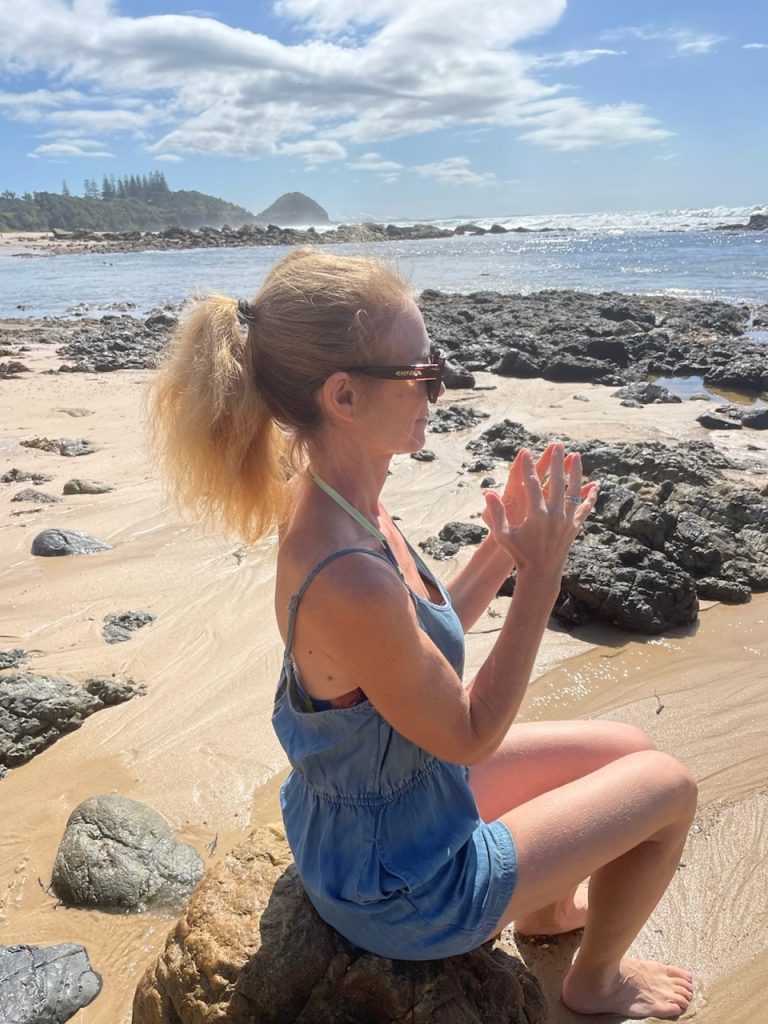What can you do about pregnancy anxiety?
The public and private faces of pregnancy can look very different – publicly we feel pressure to smile and happily parade our growing bump, but the private side of pregnancy can find us bombarded with self doubt and worry.

Pregnancy, especially for first time mums, is a massive lifestyle change. It can give us a sense of wonder and awe, but we also know there will be no turning back – from now on life will never be the same.
Along with these feelings, we have an overload of hormones which can leave us feeling elated one moment and teary the next. And once the initial excitement has waned, many mums-to-be question whether they’ll be able to cope with the birth, if they’ll be a good mother? And if they are really ready?
These anxieties are common and completely natural. Psychologist and author of Parenting for a Peaceful World, Robin Grille says: ‘Instinctively, women know they are going through a huge change and any change is scary.’
But he says there is a healthy side to this anxiety because it enables you to draw more support towards yourself. This support, Robin says can be from friends with children, older women, or your own mother – who can provide you with a ‘map’ to help navigate this new territory.
Robin advises you look for warm and affectionate role models, preferably your own mother, and to know that pregnancy is not something you do alone – you are entitled to help from other people. ‘Articulate how you feel and don’t place expectations upon yourself,’ he says.
‘There are layers of anxieties,’ he adds. ‘And some of these anxieties are to do with one’s own history and unconscious unresolved issues.’ There will be times it may be beneficial to see a counsellor – especially if these emotions aren’t easily soothed by the love and empathy of your partner, friends or family.
Jane Munro of Pregnancy Counselling Australia, says many of the calls on the 24-hour Pregnancy Counselling Helpline are from women worried about practical issues such as concerns about having consumed alcohol, drugs or medication before they realised they were pregnant. She says all expectant or would-be mothers need to be aware of the risks. And the best thing to do is seek expert advice rather than worrying.
Other issues, such as financial worries, moving house, renovating, pregnancy complications, bereavement or previous abortion or miscarriage can all add to the woman’s level of anxiety.
And one of the main fears is the birth itself – for some women this can overshadow everything, but it’s important to learn ways to relax and enable your body to release tension and fear, so you can open up to the birth.
The breath is one of the best ways to cope with anxiety, simply taking slow, deep breaths – feeling the rib cage expand and then release – will bring more oxygen-rich blood into your body and through the placenta to your baby. This will help not only the birth, but enable you to control feelings of anxiety if and when they arise.
It’s a good idea to come up with strategies to cope with anxiety – ways that help you feel relaxed. It could be a yoga or meditation class, going for regular walks, running or swimming. It’s also important to establish a good support network and if needed, a trusted counsellor.
Anxiety is an intrinsic part of parenting – it’s perfectly natural, but at times it can also be helpful. Whatever you do – don’t worry about worrying! Let yourself enjoy the mystery and excitement of your pregnancy and becoming a mother.
* a version of this article first appeared in Pregnancy and Birth.
story by Katie Brown
Useful websites:
Pregnancy Counselling Australia
http://www.pregnancycounselling.com.au
Australian Counselling Association
Beyond Blue (offering advice on depression and anxiety)
International Yoga Teachers’ Association:

